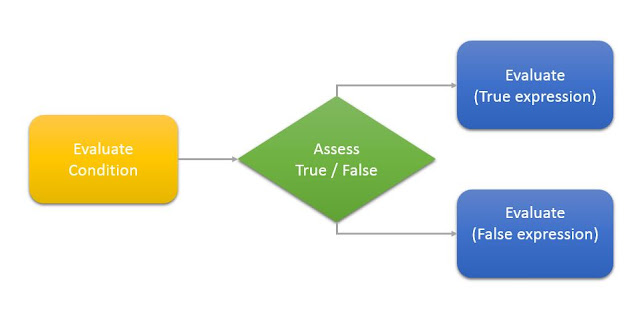Interested in expressing a lot using minimal words. Well, Ternary Operator comes as saviour. Its a conditional operator which works with three operands.
To put in simple words, its a one line replacement for if-then-else statement. It helps to ensure that the code is concise without impacting its readability.
Syntax
condition ? <expression-if-True> : <expression-if-False>
The above syntax is a booelan expression which evalautes the above condition as either True or False. If evaluated True, then "expression-if-True" is evaluated else "expression-if-False" is evaluated.
Lets take an example to
if (condition) {
doThis();
}else {
doThat();
}
// can be also expressed as
condition ? doThis() : doThat();
Ternary Operartor as Expression
Since the Ternary operator is an expression, it can therefore be used at the right hand side of an assignment statement.
Lets have a look at the following example. Here a variable can be assigned a value based on the boolean condition.
int speedLimit = isHighway() ? 80 : 40;
Lets take another example, here we can see it helps reduce multiple return statements.

Nice answers in replace of the question with real point of view and explaining about that.
ReplyDeleteuser experience agency